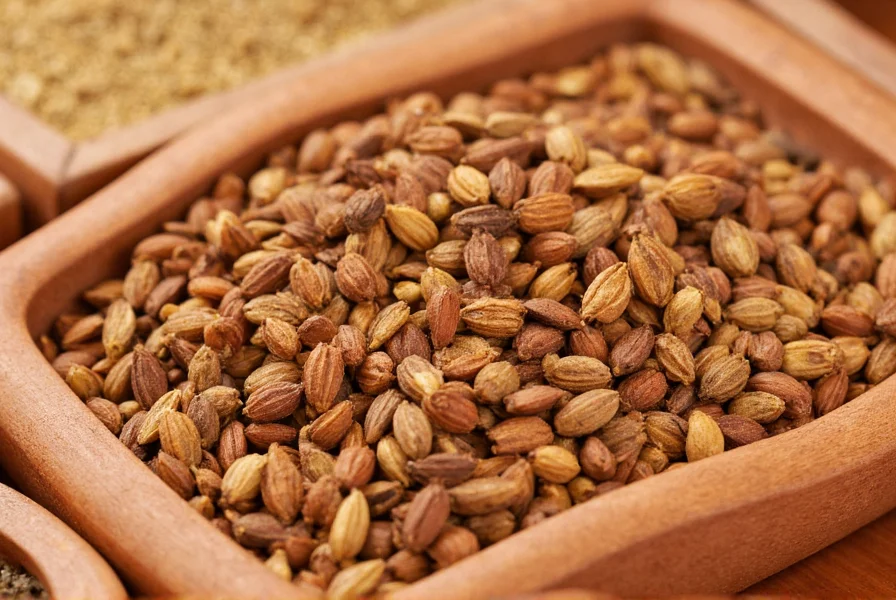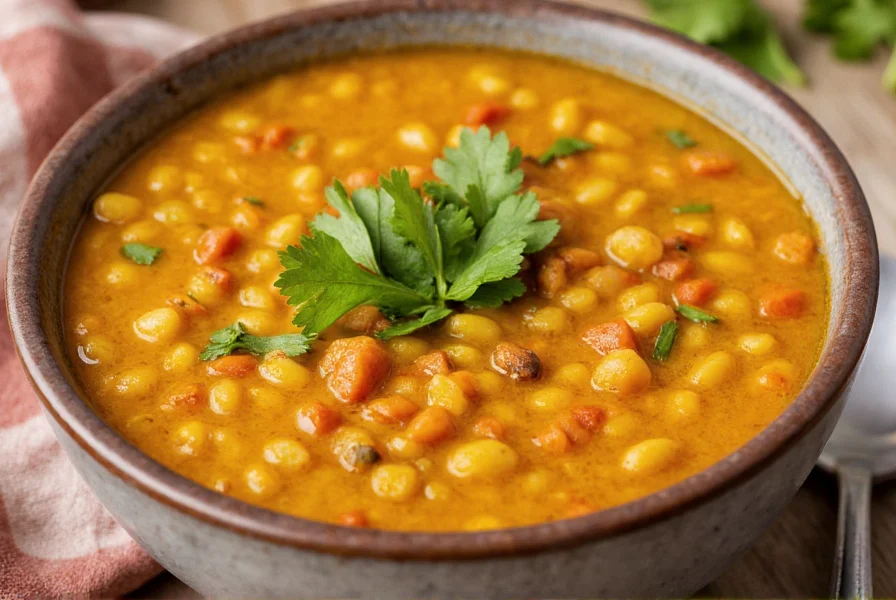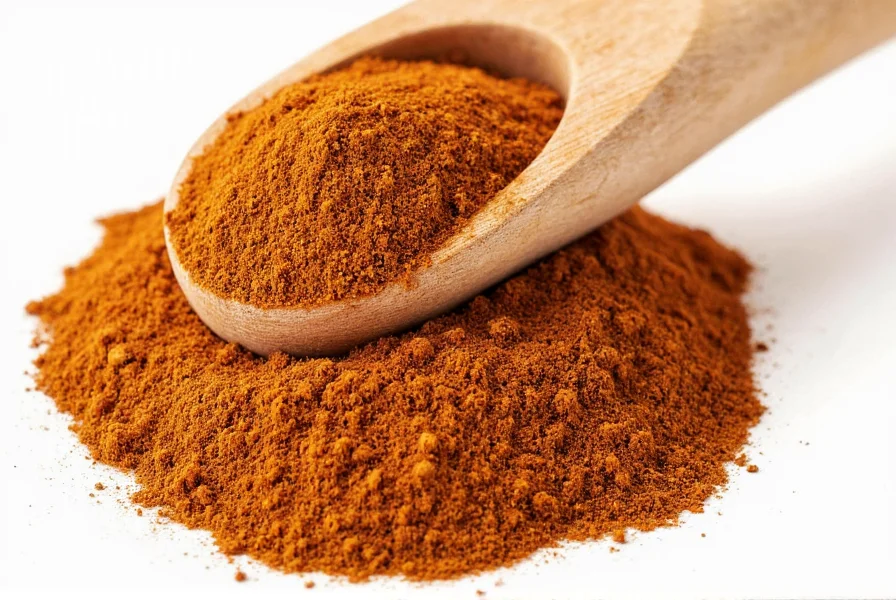Cumin spice offers scientifically supported health benefits including improved digestion, blood sugar regulation, and potent antioxidant effects. Research shows cumin contains compounds like cuminaldehyde that demonstrate anti-inflammatory properties and may support cardiovascular health. While promising, most studies use concentrated extracts rather than culinary amounts, so realistic expectations about dietary consumption are important.
For centuries, cumin (Cuminum cyminum) has been valued not just for its distinctive earthy flavor but for its potential health-promoting properties. Modern research continues to validate many traditional uses of this ancient spice, revealing a complex profile of bioactive compounds that interact with human physiology in meaningful ways.
Nutritional Profile of Cumin
Understanding cumin's health benefits begins with examining its nutritional composition. Just one teaspoon (2.1 grams) of ground cumin provides:
| Nutrient | Amount per Teaspoon | % Daily Value |
|---|---|---|
| Iron | 1.4 mg | 8% |
| Manganese | 0.1 mg | 5% |
| Magnesium | 11 mg | 3% |
| Calcium | 23 mg | 2% |
| Dietary Fiber | 0.6 g | 2% |
Beyond these basic nutrients, cumin contains over 100 identified compounds, with cuminaldehyde being the primary bioactive component responsible for many of its health effects. Other important compounds include terpenes, phenols, and flavonoids that contribute to its antioxidant capacity.

Scientifically Supported Health Benefits of Cumin
Digestive Health Improvement
Multiple studies confirm cumin's traditional use for digestive support. Research published in the Journal of Ethnopharmacology demonstrated that cumin extract significantly increased bile production, which aids in fat digestion. Another clinical trial found that participants with indigestion who consumed 20 drops of cumin essential oil daily experienced significant reduction in symptoms like bloating and abdominal pain compared to placebo.
Blood Sugar Regulation
Several human studies suggest cumin may help regulate blood glucose levels. A randomized controlled trial in Nutrition Research showed that participants with type 2 diabetes who consumed 75mg of cumin extract daily for eight weeks had significant improvements in fasting blood sugar and HbA1c levels. The mechanism appears related to cumin's ability to enhance insulin sensitivity and protect pancreatic beta cells.
Antioxidant and Anti-inflammatory Effects
Cumin ranks highly among spices for antioxidant capacity. A comparative analysis in Food Chemistry found cumin's ORAC (Oxygen Radical Absorbance Capacity) value exceeds many common spices. These antioxidants, particularly flavonoids and phenolic acids, help combat oxidative stress throughout the body. Research in Phytotherapy Research demonstrated that cumin extract reduced inflammatory markers like TNF-α and IL-6 in animal models, suggesting potential benefits for inflammatory conditions.
Cardiovascular Health Support
Preliminary research indicates cumin may support heart health through multiple pathways. Studies show cumin supplementation can help maintain healthy cholesterol levels. A clinical trial in Complementary Therapies in Medicine found that participants who consumed 75mg of cumin extract daily for eight weeks showed significant reductions in LDL cholesterol and triglycerides compared to the control group.
Practical Applications and Dietary Incorporation
While research often uses concentrated extracts, culinary use of cumin still offers benefits. Here's how to maximize its health potential in your diet:
- Optimal preparation: Toasting cumin seeds before grinding releases more bioactive compounds
- Daily intake: 1-2 teaspoons of ground cumin provides noticeable benefits without risk of side effects
- Pairing: Combining cumin with black pepper increases absorption of its beneficial compounds
- Culinary uses: Add to roasted vegetables, soups, stews, or homemade spice blends

Considerations and Potential Side Effects
Cumin is generally safe when consumed in culinary amounts, but certain considerations apply:
- High doses (above 1g daily of concentrated extracts) may cause heartburn or nausea in sensitive individuals
- Cumin may interact with blood-thinning medications due to its coumarin content
- Pregnant women should avoid medicinal doses as cumin may stimulate uterine contractions
- Those with bleeding disorders should consult healthcare providers before using cumin medicinally
Cumin Compared to Other Health-Promoting Spices
While cumin offers unique benefits, understanding how it compares to other spices helps make informed dietary choices:
| Spice | Key Health Benefits | Best Culinary Pairings | Daily Recommendation |
|---|---|---|---|
| Cumin | Digestion, blood sugar regulation, antioxidant | Beans, lentils, roasted vegetables | 1-2 tsp |
| Turmeric | Anti-inflammatory, joint health | Rice, soups, smoothies (with black pepper) | 1/2-1 tsp |
| Ginger | Nausea relief, digestion, immunity | Teas, stir-fries, baked goods | 1/2-1 tsp |
| Cinnamon | Blood sugar control, antioxidant | Oatmeal, fruits, coffee | 1/2-1 tsp |
Realistic Expectations for Cumin Consumption
It's important to maintain realistic expectations about cumin's health effects. While research is promising, most studies use concentrated extracts rather than culinary amounts. Cumin should be viewed as part of an overall healthy diet rather than a standalone treatment for medical conditions. The cumulative effect of regular consumption as part of a balanced diet contributes to long-term wellness rather than providing immediate dramatic results.
Frequently Asked Questions About Cumin Health Benefits
Does cumin really help with weight loss as some sources claim?
Some preliminary studies suggest cumin may support weight management when combined with a healthy diet. A clinical trial published in Complementary Therapies in Medicine found that women who consumed 3g of cumin powder daily with yogurt lost significantly more weight than the control group over eight weeks. However, these effects appear modest and work best as part of comprehensive lifestyle changes rather than as a standalone solution.
How much cumin should I consume daily to get health benefits?
For general health benefits, 1-2 teaspoons (3-6 grams) of ground cumin daily provides noticeable benefits without risk of side effects. Research studies often use higher amounts (up to 3 grams) for specific therapeutic effects, but these should be discussed with a healthcare provider. Culinary use in regular cooking typically provides sufficient amounts for general wellness support.
Can cumin help lower cholesterol levels?
Several studies indicate cumin may support healthy cholesterol levels. Research published in Annals of Nutrition and Metabolism showed that participants who consumed cumin extract had significant reductions in LDL cholesterol and triglycerides. The mechanism appears related to cumin's antioxidant properties and its ability to enhance bile production, which helps process dietary fats. However, cumin should complement rather than replace prescribed cholesterol medications.
Is there a difference in health benefits between cumin seeds and ground cumin?
Whole cumin seeds generally retain more volatile compounds and antioxidants than pre-ground cumin. For maximum benefit, toast whole seeds briefly then grind them fresh before use. Ground cumin loses potency more quickly, so store it in an airtight container away from light and heat. Freshly ground cumin provides approximately 30% more active compounds than pre-ground varieties stored for several months.











 浙公网安备
33010002000092号
浙公网安备
33010002000092号 浙B2-20120091-4
浙B2-20120091-4